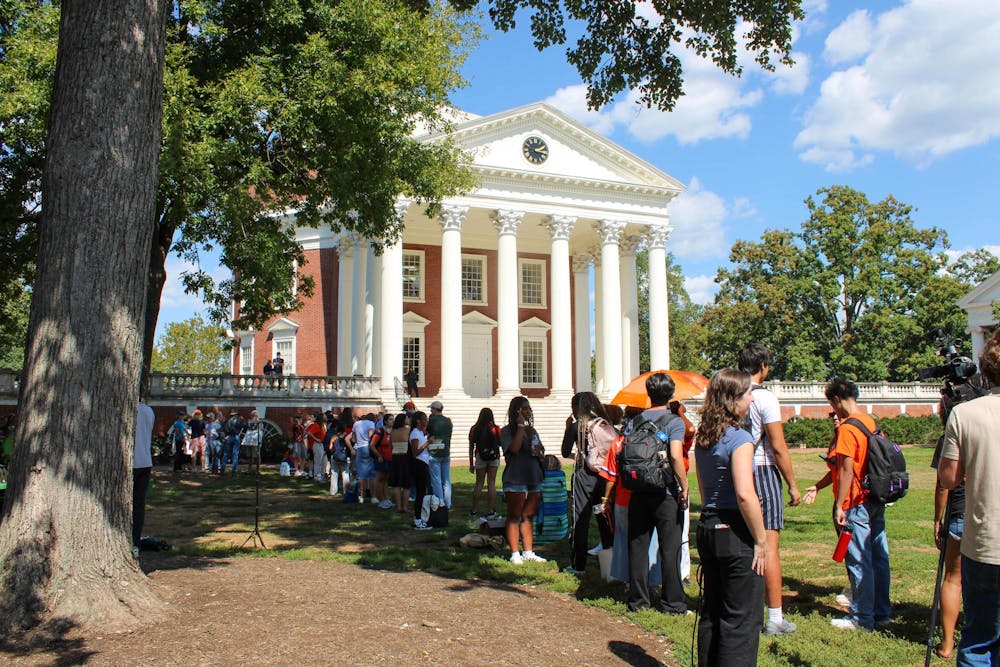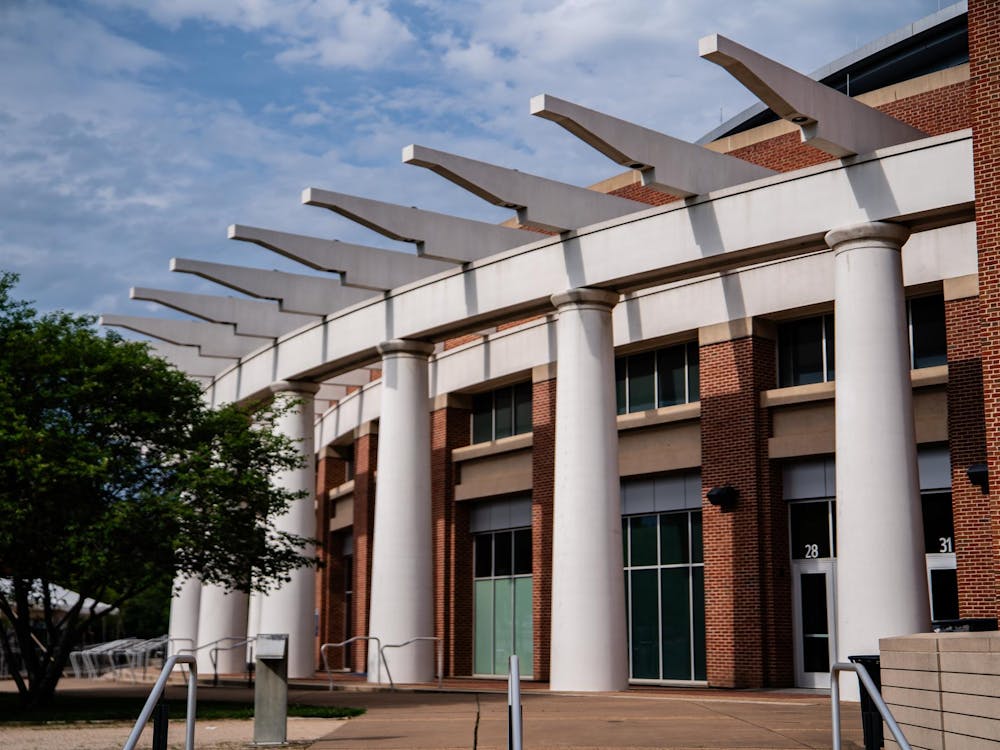Friday’s meeting of the full Board turned tense when dozens of protesters lined up outside the Board room to attempt to enter, which most were unable to do.
Because most members of the public who attempted to enter were unable to, the University may have acted against prior advisory and court opinions on freedom of information law during Friday’s Board of Visitors meeting, according to a lawyer familiar with the law and past cases.
Batten graduate student Eli Weinger was one of the protesters at Friday’s meeting, and said that he believes the Board room is deliberately small so as to prevent the Board from being accountable to students.
“We’re here, lined up to try to get in the room … we know the Board of Visitors has set up a structure that makes being heard impossible, and that’s intentional, they don’t want to listen to what we have to say,” Weinger said. And what we’re here saying today is no, you’re going to have to listen.”
In a statement to The Cavalier Daily, Glover said that the University was compliant with all state requirements at Friday’s meeting.
“We accommodate as many members of the media and public into open sessions as possible, without violating fire code restrictions for the room or causing disruptions to board proceedings,” Glover said. “We also make all open sessions available via livestream so that anyone can view the proceedings.”
The Virginia Freedom of Information Act says that all public meetings and documents must be presumed open in most cases. All public offices have a FOIA office which handles open records requests.
There are two instances that clarify the University’s position in relation to Friday’s protest.
One is a 2013 opinion by the Virginia Freedom of Information Advisory Council, which found that the University’s Board violated FOIA law by denying students entry into the Board room — and threatening them with arrest and expulsion — because there was not enough capacity. The opinion said that while FOIA law does not specify any logistics of the size of the room under the definition of a public meeting, that the best practice would be to ensure a meeting room is large enough.
“While FOIA is silent regarding the logistics involved in holding public meetings, because the University is now aware of the increased interest in its meetings, the best practice is to ensure a meeting location large enough to accommodate all,” then-FOIA council executive director Maria Everett wrote in the opinion.
Everett also suggested in the opinion that public meetings should accommodate the public, not the other way around.
“The point is about openness and access to the public; it is not about how many chairs are in a room, it is about making sure there are enough chairs.”
A 2023 case before the Virginia Supreme Court referenced the 2013 case in a legally binding opinion, upholding its findings. The court ruled that if capacity was available, members of the public must be let in up to that capacity, but that the public body did not necessarily need to move the venue because of demonstrated public interest.
The court found that the public body’s obligation to make room for members of the public is up to a “rule of reason.”
The case the court heard in 2023 was about a school board meeting which denied entry to a member of the public and the media, and it still lost the case despite offering a video feed in another room of the building.
Citing the 2013 opinion, Kevin Martingayle, partner at Bischoff Martingayle in Virginia Beach and class of 1991 Law alumnus, believes the University would lose in court if litigation were brought challenging their venue choice for the most recent Board meeting.
Martingayle said he believes the University is “highly likely” to lose in court if a member of the public who was denied entry Friday brought litigation. He argued that the Board deciding to meet in their typical room because it is what they do every time is not a good enough reason when there was demonstrated public interest and other larger spaces available.
The Board room in the historic Rotunda is not large, with a capacity of up to 60 people — including Board members — according to a representative from Facilities Management.
He added that he believes a judge would determine that the University could have moved the meeting unless there was a specific reason the smaller venue was needed, such as technological demands or cost of reserving other spaces.
“The U.Va. Board should know better than to plan a meeting for a space too small to accommodate a reasonably large audience. They were told of this requirement in 2013 when the FOIA Council issued an opinion and the Supreme Court of Virginia said it again in 2023,” Martingayle said. “They are inviting litigation and that’s a real mistake.”
Questions surrounding Friday’s Board meeting come as some say the Board is already not meeting lawfully because it does not contain the minimum requirements in the Code of Virginia. The law says the University’s Board should have a minimum of 12 Virginia residents and 12 alumni. The University maintains that it is in compliance with the law.







